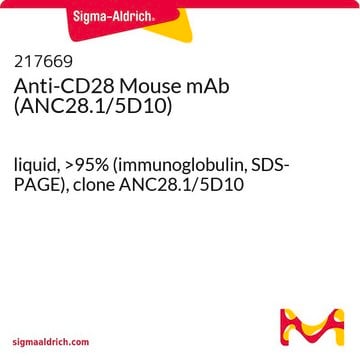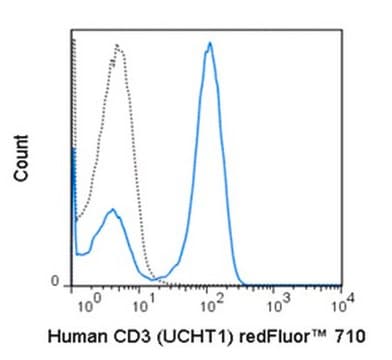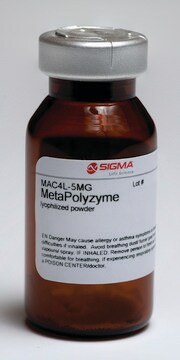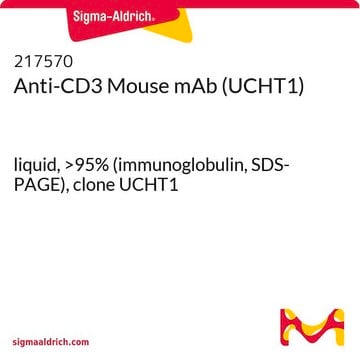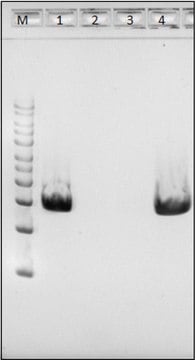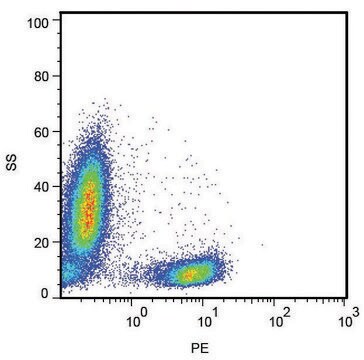C7831
Anti-CD28 antibody, Mouse monoclonal
clone CD28.2, purified from hybridoma cell culture
Synonyma:
Monoclonal Anti-CD28
About This Item
Doporučené produkty
biological source
mouse
conjugate
unconjugated
antibody form
purified immunoglobulin
antibody product type
primary antibodies
clone
CD28.2, monoclonal
form
buffered aqueous solution
mol wt
antigen 44 kDa
species reactivity
human, rhesus monkey
technique(s)
flow cytometry: 5 μL using 1 × 106 cells
immunocytochemistry: suitable
immunohistochemistry (frozen sections): suitable
isotype
IgG1
UniProt accession no.
shipped in
wet ice
storage temp.
2-8°C
target post-translational modification
unmodified
Gene Information
human ... CD28(940)
Hledáte podobné produkty? Navštivte Průvodce porovnáváním produktů
Související kategorie
General description
Specificity
5th Workshop: code no. CD28.05.
Immunogen
Application
- Flow cytometry at a dilution of 5μL using 1 × 106 cells
- Immunocytochemistry
- Immunohistochemistry (frozen sections)
Biochem/physiol Actions
Target description
Physical form
Disclaimer
Ještě jste nenalezli správný produkt?
Vyzkoušejte náš produkt Nástroj pro výběr produktů.
Storage Class
10 - Combustible liquids
wgk_germany
WGK 3
flash_point_f
Not applicable
flash_point_c
Not applicable
Osvědčení o analýze (COA)
Vyhledejte osvědčení Osvědčení o analýze (COA) zadáním čísla šarže/dávky těchto produktů. Čísla šarže a dávky lze nalézt na štítku produktu za slovy „Lot“ nebo „Batch“.
Již tento produkt vlastníte?
Dokumenty související s produkty, které jste v minulosti zakoupili, byly za účelem usnadnění shromážděny ve vaší Knihovně dokumentů.
Náš tým vědeckých pracovníků má zkušenosti ve všech oblastech výzkumu, včetně přírodních věd, materiálových věd, chemické syntézy, chromatografie, analytiky a mnoha dalších..
Obraťte se na technický servis.
